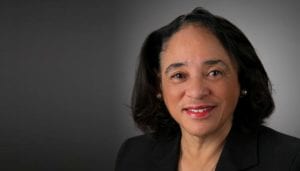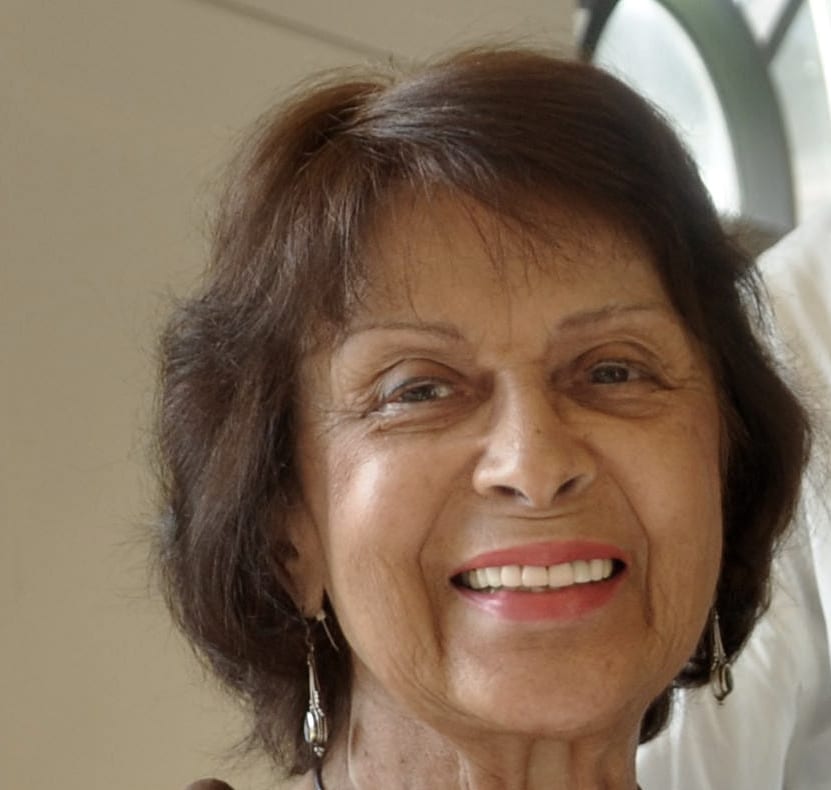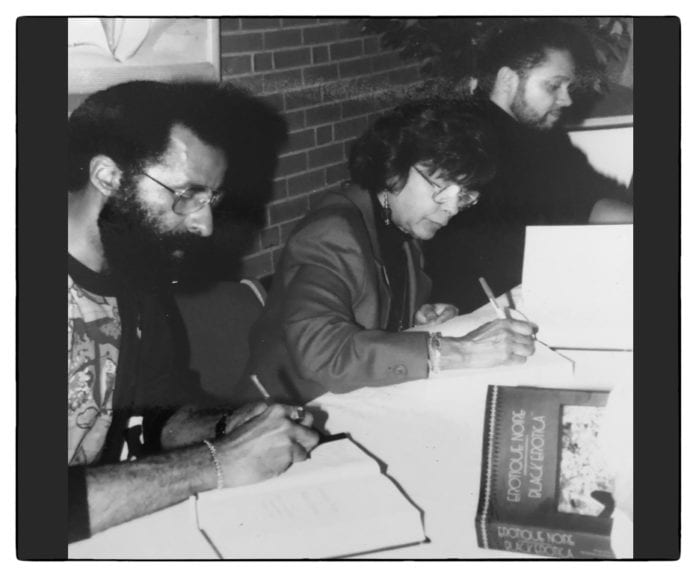by Dr. Carol Johnson Dean —

While Black American history and women’s history are celebrated year-round at LeMoyne-Owen College (LOC), we are pleased that both February and March have offered us another opportunity to highlight the contributions of many in our community whose legacy and impact continue long beyond their physical presence in our midst.
In January, we said farewell to one of our trailblazers, Dr. Miriam DeCosta-Willis, who touched many in our college community and beyond.
The proof of someone’s work is seen in the voices of their students and peers who speak passionately about how they were challenged to learn and excel.

Dr. DeCosta-Willis never settled for mediocrity from herself or from any student, regardless of background.
A brilliant scholar, she was a Phi Beta Kappa graduate of Wellesley College and went on to earn her doctorate from Johns Hopkins University, although she was denied admission into Memphis State University in 1957.
We are pleased that the now-University of Memphis saluted her as its first Black professor and recognized her pivotal role in breaking the glass ceiling for Blacks there in 1966.
We are proud that Dr. DeCosta-Willis began her scholarly journey in the classrooms of Steele Hall at LeMoyne-Owen College.
Professor Phillip R. Dotson, a long-time artist and historian at the college, described Dr. DeCosta-Willis as one of the most intellectually brilliant and prolific writers he has had the opportunity to work with during his career.
Dr. DeCosta-Willis first joined the former S.A. Owen Junior College faculty, where she taught Spanish and introduced many first-generation college students to Romance languages in the 1950s and 1960s.
As co-founder of the Black Writer’s Workshop, she convened African-American writers, creating a renaissance for networking outstanding authors, historians and artists.
She went on to write and edit nine books and numerous articles, and was a speaker at a host of conferences and events.
LOC professor and attorney Charlotte Bush recounted first meeting Dr. DeCosta-Willis through the Upward Bound Program at Booker T. Washington High School, where she inspired students in the summer and emphasized to them that they would come to LOC to define their voice.
“She taught us about ‘Hidden Figures’ long before the movie documented the contributions of Black female scientists,” Bush said. “She put the fire in all of us to succeed,”
Former school board Commissioner Sara Lewis described Dr. DeCosta-Willis as having high standards and willing to take the time to explain and give students feedback.
“Some professors boast about having high standards, but she went the extra mile to ensure success,” she said.
Dr. Sandra Vaughn, LOC Interim Vice President for Academic Affairs, was exposed to notable writers Paula Giddings, Nikki Giovanni and Sonia Sanchez through Dr. DeCosta-Willis’ invitation to visit the campus.
She also emphasized the importance of documenting the history of Memphis. Examples of her advocacy for Black history are represented in, “The Memphis Diary of Ida B. Wells,” “Notable Black Memphians” and “Black Memphis Landmarks.”
Whether it was her excursions to the Holy Land or Ghana, she had a way of pulling together scientists, politicians, artists and poets. She always found ways to stir our inspirational juices and model for us how to construct meaning from other authors.
Dr. DeCosta-Willis founded the W.E.B. Honors Program at LOC based on his belief that “the Black College exists to prepare Black men and women to perform at a high level the work the world wants done.” The program continues to recruit outstanding scholars today.
She had a tremendous impact on many in our community, including Dr. Reginald Martin, professor of English at the U of M professors; Otis L. Sanford, professor, newspaper columnist and author, and Dr. Beverly Bond, University of Memphis African-American History professor.
Along with NAACP activist and community leader, the late Maxine Smith, she transformed the Memphis landscape and trajectory for many. West Tennessee Regional Medical Director Dr. Shavetta Conner, a biology major at LeMoyne-Owen College and Dr. DeCosta-Willis’ mentee, described her as an impactful professor.
“She introduced me to (noted authors) Zora Neale Hurston and Toni Morrison. She opened up a whole new world for me.”
Because Conner was so inspired, her mother, who had not attended college, joined her in class to hear Dr. DeCosta-Willis’ lectures. Dr. DeCosta-Willis’ legacy lives on in the Memphis community and beyond.
(Dr. Carol Johnson Dean recently served as interim president of LeMoyne-Owen College. She served as executive director of New Leaders – South Region in Memphis, and is a former superintendent of the legacy Memphis City School.)



